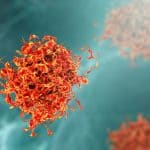Neurologists from the Beth Israel Deaconess Medical Center (BIDMC) have revealed that a simple skin biopsy test could detect abnormal amounts of alpha-synuclein, a key biomarker of Parkinson’s disease (PD), as well as other neurodegenerative disorders.
Published in the Journal of American Medical Association and sponsored by the National Institute of Health, the results of the study could help physicians make more accurate diagnoses and improve clinical trials for alpha-synuclein targeting investigational drugs.
Affecting an estimated 2.5 million people in the US, synucleinopathies comprise four neurodegenerative disorders: PD, dementia with Lewy bodies (DLB), multiple system atrophy (MSA) and pure autonomic failure (PAF), which share a common pathologic lesion called phosphorylated alpha-synuclein (P-SYN).
Building on a previous BIDMC study in 2023, which demonstrated that skin biopsies could distinguish between PD and MSA, which both have similar prognoses, the Synuclein-One Study enrolled 428 people aged 40 to 99 years old, with a clinical diagnosis of one of the four synucleinopathies with no previous history of neurodegenerative disease who underwent three 3mm skin punch biopsies taken from the neck, knee and ankle.
Results found that 93% of PD patients demonstrated a positive skin biopsy for P-SYN, while those with DLB and MSA tested 96% and 98% positive, respectively.
Additionally, 100% of patients with PAF were positive for P-SYN, while just over 3% of those in the control group tested positive for the abnormal protein.
Researchers hope that the findings from the study will help accelerate drug development for synucleinopathies.
Christopher Gibbons, neurologist at BIDMC and professor of neurology at Harvard Medical School (HMS), said: “This… study demonstrated how we can more objectively identify the underlying pathology of synucleinopathies and offer better diagnostic answers.”
Roy Freeman, director, BIDMC’s Center for Autonomic and Peripheral Nerve Disorders and professor of neurology at HMS, said: “Identifying the relevant biomarker… and tracking it over the course of a clinical trial is an essential component of drug development in the neurodegeneration field.”










